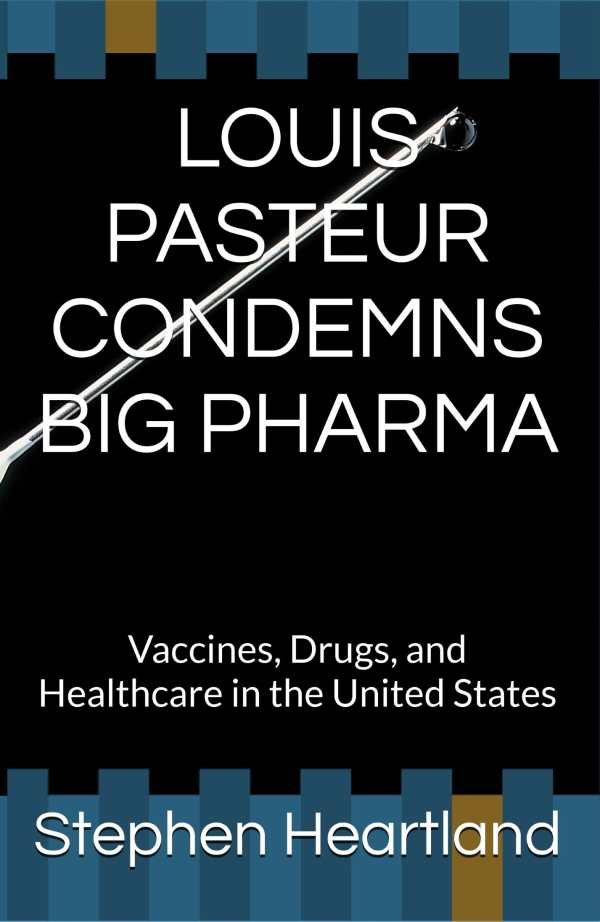
Louis Pasteur Condemns Big Pharma
Vaccines, Drugs, and Healthcare in the United States
Louis Pasteur Condemns Big Pharma functions as an extended argument about the dangers of the pharmaceutical industry, with an emphasis on modern vaccines.
Stephen Heartland’s incendiary book Louis Pasteur Condemns Big Pharma tackles the pharmaceutical industry’s abuses and the US government’s handling of COVID-19.
An extended argument about the dangers of the pharmaceutical industry with an emphasis on modern vaccines in the United States, this book asserts that the US government forces people to take vaccines or face consequences. Indeed, considerable page count is dedicated to the COVID-19 vaccine, which is presented as an unproven treatment whose creation is stated several times to be a crime against humanity. The book also dedicates extensive space to the birth of vaccines, comparing the production methods of early vaccines and modern ones. Louis Pasteur’s work in general is also discussed, though the text indulges in speculation on the topic, wondering what Pasteur would think about the contemporary scientific community and its methods and issuing conjectures regarding his opinions.
The text’s persuasiveness is undermined by the presence of sweeping statements and misleading information. Some claims, such as that the US government forced all citizens to take the COVID-19 vaccine at the risk of losing their jobs or being unable to travel, are undersupported; this claim is also repeated without need throughout. Data is eschewed in favor of anecdotal evidence, and few examples are presented to support claims about forced injections. An off-putting analogy between forced experiments on concentration camp prisoners in Nazi Germany and the FDA’s recommendation that people take the COVID-19 vaccine further undermines the book’s credibility.
While some sections, as with those concerning Louis Pasteur’s life and contributions, are well sourced, citations are too rare in the book as a whole. Familiar claims, such as that modern vaccines cause conditions like autism and ADHD, are repeated without the benefit of proof, or with tenuous evidence such as pattern recognition analysis and the rise in diagnoses sans deeper scientific support. The book presents its claims as common sense but is too quick to dismiss alternatives outright to persuade those not already of its mindset. The blurring of lines between the pharmaceutical industry, the scientific community as a whole, and the government, which are treated as parts of the same entity, further impedes the book, while its incendiary language has a deleterious effect.
Repetition is also frequent in the text, with some claims restated several times per chapter, rendering some sections of the book redundant. A chapter focused on what American citizens can do to combat vaccination misinformation, for example, finds its content repeated later; on its second appearance, it focuses on sources to back up its claims. The book’s disclaimer is also included twice. As a result of such techniques, the book’s closing call to action falls flat.
Looking to early vaccines as a model, Louis Pasteur Condemns Big Pharma critiques contemporary vaccines and vaccination models, health-care processes, and US politics with vigor.
Reviewed by
Carolina Ciucci
Disclosure: This article is not an endorsement, but a review. The publisher of this book provided free copies of the book and paid a small fee to have their book reviewed by a professional reviewer. Foreword Reviews and Clarion Reviews make no guarantee that the publisher will receive a positive review. Foreword Magazine, Inc. is disclosing this in accordance with the Federal Trade Commission’s 16 CFR, Part 255.
